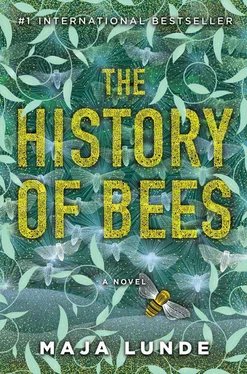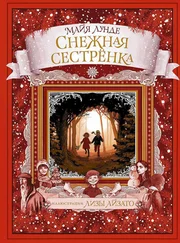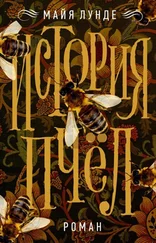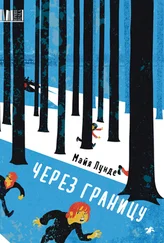Finally.
I waited for his answer, but it didn’t come.
As the silence grew between us, my anxiety also increased.
“It would please me to hear your thoughts,” I said finally.
He walked around the hive. Studied it from all sides. Opened it. Closed it.
I held my hands behind my back. The gloves were more clammy than ever.
Then the inevitable.
“You’ve built a Dzierzon hive.”
I stared at Rahm, didn’t understand what he meant. He repeated the words slowly:
“You’ve built a DZIERZON HIVE.”
“What?”
“Johann Dzierzon. Vicar and beekeeper. Polish, but for the time being he resides in Germany. It’s his hive you’ve built.”
“No. This is mine. I mean, I’ve never even heard of this… Tzi…”
“Dzierzon.”
Rahm turned his back on the hive. Walked a few steps away, took off his hat. His face was red. Was he angry?
“I read about his hive for the first time more than ten years ago. He has published a series of articles about it in Bienen-Zeitung .”
He sized me up with his gaze; it was expressionless.
“I know that you don’t read this publication and the articles haven’t been in circulation outside of research communities. So I understand of course that you haven’t heard of them.” His tone was overbearing. “But this hive you’ve made gives you good access for observation, as you so correctly point out. It would be easy for you to study the bees in vivo. Perhaps something could come out of the work all the same.”
Now he smiled and I understood that the red color of his face was not due to anger, but rather amusement; pent-up laughter, the curt, small laugh without joy, because once again I’d disappointed him and he just wanted to laugh.
But he didn’t release it, just stood that way looking at me, clearly waiting for an answer. I was unable to say anything. This couldn’t be true. Was all my work in vain? I felt a tightening around my throat, the blood rushed to my face. And when I was unable to say anything, he continued:
“I would recommend that you inform yourself better in the field before you get started on your next project. Great advances have been made in the field in recent years. Dzierzon claims, for example, that queen bees and worker bees are both products of fertilization, while drones for their part develop from unfertilized eggs. A controversial theory, but of great current interest and much discussed. He has apparently also inspired a young monk named Gregor Mendel to start up a research project on heritability, the likes of which nobody has seen. There is lot to delve into here, as you can see.”
He handed me the hat.
“Nonetheless, it was good to see that you’re on your feet again. And thank you for wanting to show me your little hobby.”
I stood there with the hat in my hands, so it was unnatural to reach out my hand. Neither did I manage to say anything, fearing that a good-bye would be accompanied by a sob.
Rahm put his own hat on his head with a practiced movement, said good-bye with a nod and a touch of his hand to the brim of his hat and then he turned around and left.
I was left alone, a young boy with his little hobby.
Iwalked quickly across the field, towards the river. Past the oak tree. There was a knot in my stomach. They had to be somewhere.
I took out my cell phone, checked to see if anybody had called, maybe somebody had a swarm in their garden? But no. I would have heard it.
Because this wasn’t swarming. Of course not. I knew that much. No hive looked like this after a swarm. No swarm abandoned the old queen.
I went through the landscape with a fine-toothed comb, back and forth.
Nothing.
I took out my cell phone again. Had to straighten this out, get it under control, and I needed help.
I punched Rick’s number. He answered immediately; there was noise in the background, he was at the pub.
“Rick at your service!” He said it with a laugh.
I couldn’t answer, the words got stuck in my chest.
“Hello? George?”
“Yes. Hi. Sorry.”
“Is there something wrong? Wait a minute.”
It got quieter around him; he had probably walked out of the pub.
“Hi. Now I can hear you.”
“Yeah. Rick, I was just wondering if you could come over. To the field by the river.”
The laughter disappeared from his voice; he heard from my own that it was serious.
“What do you mean? Now?”
“Yeah.”
“George? What is it?”
My voice broke. “There’s stuff, a lot of stuff to clean up.”
• • •
Emma was crying. She was standing out in the middle of the field, under a tree, crying. The leaves threw shadows over her face, moving across her glistening cheeks. Maybe she’d tried to hide under the tree, hide that she’d broken down. But I found her, put my arms around her and held on tight, like I always did when she burst into tears. It helped, she calmed down. And I calmed down, too.
Around us lay hives I’d turned upside down, the candy colors garish in the sunlight. They were tiny houses, razed by a giant. And the giant was me. I hadn’t bothered to clean up. Had rushed across the field, checking one after the other, while the blood raged in my body and my breathing wailed in my ears.
I hadn’t lost all of them. A hive or two were just like before; the bees buzzed around and worked down there, as if nothing had happened, but there were far too few healthy hives. I couldn’t bear to count. Just kept going. On and on.
Rick and Jimmy had both arrived. They were working a short distance away from us. Rick walked slowly back and forth; for once he kept his mouth shut, his body swaying slightly, like he didn’t know where to begin. Jimmy had already started working. He lifted empty hives and stacked them together neatly.
“Something like this can’t just happen.” Emma sobbed into my sweater.
I didn’t have an answer.
“There must be something that’s been done wrong.”
I released her. “You think this is because of operational errors?”
“No, no.” Her crying abated. “But what about the feed?” She straightened up, her face was concealed by shadow, her eyes didn’t meet mine.
“Fine—good Lord, look at the calendar, you know this isn’t when they run out of feed!”
“No, of course not.”
She wiped her face. I stood there, my hands idle; I didn’t know what to do with them.
She looked out of the shadow under the tree, towards the field and the light.
“It’s very warm. Many of them are out in the sunshine all day.”
“They’ve done that every single summer for generations.”
“Yes. Sorry, but I can’t bring myself to believe they can disappear. For no reason.”
I clenched my teeth and turned my back on her.
“You can’t believe it. But that doesn’t make any difference now, does it.”
A lone bee buzzed past us.
“Sorry,” she said softly. “Come here.”
She lifted her arms again. Stood there, soft and safe. I let her hold me, buried my face in her sweater. Would have liked to cry like her, but my eyes were as dry as dust. I had trouble breathing. It was too suffocating, her sweater smothered me, the warm skin radiating through the fabric.
I pulled away. Began stacking some boards, but had nowhere to put them so I ended up piling them up on the ground. Tidying up aimlessly, haphazardly.
She came towards me, held out her arms.
“Hey…”
I had been betrayed, like Cupid by his mother. But I had no mother to cry to. No mother to blame, either, because I didn’t know who had betrayed me.
And I couldn’t bawl like a child swollen with bee stings.
Читать дальше









